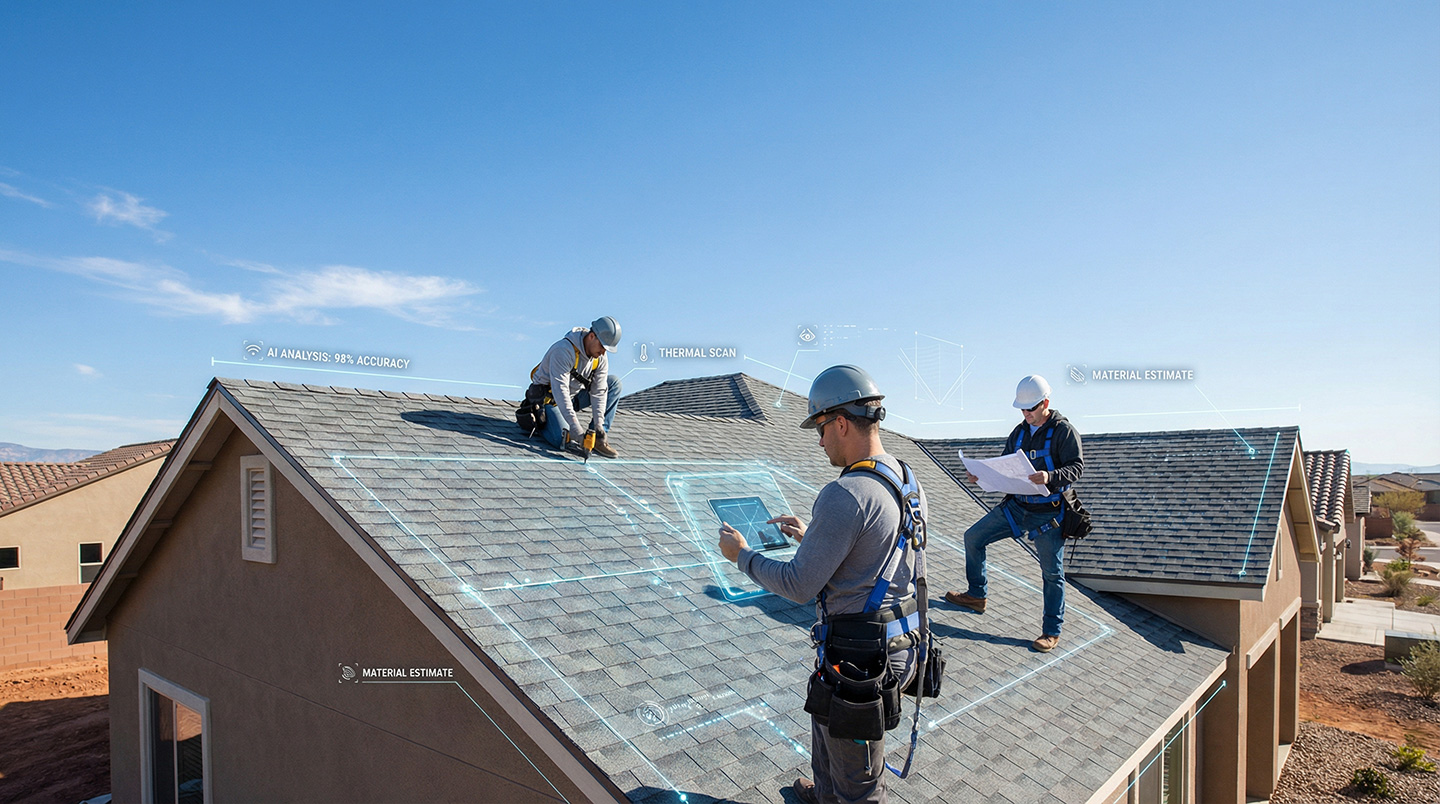Understanding roofing CRM cost (Customer Relationships Software) is critical for contractors looking to streamline operations without breaking the bank. After analyzing dozens of CRM platforms and their pricing structures, our team has identified the key factors that determine your monthly investment and uncovered strategies to maximize your ROI. This comprehensive analysis reveals exactly what roofing contractors pay for customer relationship management software, and how to choose the most cost-effective solution for your business.
What you’ll discover:
- Core cost factors that determine your monthly CRM investment
- Pricing tiers from basic tools to enterprise solutions
- Hidden fees that can increase your total cost by 40-60%
- ROI calculations that justify CRM investment for roofing projects
- Money-saving strategies that reduce costs while maximizing functionality.
Roofing CRM Cost Breakdown: What Drives Your Monthly Investment
| Cost Factor | Impact Level | Typical Range | What It Covers |
|---|---|---|---|
| User Licenses | High | $25-$150/user/month | Access for field teams, office staff, and managers |
| Storage & Data | Medium | $10-$50/month | Customer files, photos, project documents |
| Integrations | Medium | $15-$100/month | QuickBooks, payment processors, marketing tools |
| Mobile Access | High | $0-$30/user/month | Field team app functionality, offline capabilities |
| Customization | Variable | $0-200/month | Configurable workflows, forms, and project templates |
| Support & Training | Low-Medium | $0-$75/month | Implementation help, ongoing technical support |
| Total Monthly Range | – | $65-$500+ | Complete CRM solution for roofing businesses |
Source: Analysis of 15 leading CRM platforms serving roofing contractors, August 2025.
Understanding Core Roofing CRM Cost Factors
User License Structure
The biggest driver of roofing CRM cost is the number of people who need access to the system. Most platforms charge per user monthly, with costs varying based on role and features:
- Basic users (view-only access): $25-$50/month
- Standard users (full project access): $50-$100/month
- Admin users (reporting, configuration): $100-$150/month
Cost-saving tip: Many roofing contractors overpay by giving everyone admin access. To reduce monthly fees, assign roles based on actual job functions.
Data Storage and File Management
Roofing projects generate massive amounts of data, including photos, contracts, inspection reports, and correspondence. Storage costs typically break down as:
| Storage Tier | Monthly Cost | What You Get |
|---|---|---|
| Basic (5GB) | $10-$15 | Small residential contractor (1-3 projects/month) |
| Standard (50GB) | $25-$35 | Growing contractor (5-10 projects/month) |
| Premium (500GB) | $40-$50 | Established contractor (10+ projects/month) |
Integration and Add-On Fees
The hidden integration and add-on costs that catch many roofing contractors off-guard include:
- Accounting integration (QuickBooks, Zero): $15-$30/month
- Payment processing: 2.9% + $0.30 per transaction
- Marketing automation: $20-$75/month
- Advanced reporting: $25-$50/month
Roofing CRM Pricing Tiers: From Startup to Enterprise
Basic Tier ($65-$150/month)
Best for: Solo contractors or small teams (1-3 users)
Typical features:
- Contact management
- Basic project tracking
- Mobile app access
- Email integration
- Standard support
Roofing CRM cost considerations: Limited customization and integration options may require manual workarounds as you grow.
Professional Tier ($85-$350/month)
Best for: Growing roofing contractors (4-10 users)
Enhanced features:
- Advanced project management
- Custom workflows and forms
- Multiple integrations
- Automated communications
- Reporting and analytics
Value proposition: Sweet spot for most roofing contractors, balancing functionality with cost control.
Enterprise Tier ($100-$800+/month)
Best for: Large roofing companies (10+ users, multiple locations)
Premium features:
- Unlimited customization
- Advanced automation
- API access
- Dedicated support
- Multi-location management
Investment justification: Higher roofing CRM cost offset by significant efficiency gains and revenue optimization.
Hidden Fees That Inflate Your Roofing CRM Cost
| Fee Type | Typical Cost | When Charged | Impact on Budget |
|---|---|---|---|
| Setup and Implementation | $2,000-$15,000 | One-time | 25-50% of Year 1 cost |
| Data Migration | $500-$5,000 | One-time | Per legacy system |
| User Training | $100-$300/user | Per session | Ongoing expense |
| Integration Fees | $200-$1,000/month | Monthly | Per connected app |
| Storage Overages | $50-$200/month | When exceeded | Scales with project size |
| Premium Support | $500-$2,000/month | Optional but recommended | 20-40% of base cost |
| Mobile App Access | $10-$50/user/month | Per technician | Often “forgotten” |
| Custom Reporting | $1,000-$5,000 | One-time + maintenance | Critical for project tracking |
Setup and Implementation Costs
Most roofing companies underestimate implementation expenses. Beyond the software license, you’ll pay for system configuration, workflow setup, and data architecture design. Complex roofing projects require custom fields for material tracking, subcontractor management, and milestone dependencies. Remember, each customization adds cost.
Per-User Pricing Escalation
Roofing teams fluctuate seasonally. That $50/user/month rate becomes $2,000 monthly when you scale to 40 field technicians during peak season. Look for platforms offering configurable user tiers rather than rigid per-seat pricing.
Integration Tax
Your roofing operation likely uses accounting software, material suppliers’ systems, and project management tools. Each integration carries setup fees plus ongoing monthly charges. A typical roofing company needs 8-12 integrations, adding $1,600-$12,000 annually in hidden costs.
Storage and Overage Penalties
Roofing projects generate massive data volumes: photos, videos, material receipts, inspection reports, and warranty documentation. Standard plans often include minimal storage, with overage fees kicking in quickly on large commercial projects.
CRM ROI Calculations: Measuring Your Investment Returns
Understanding the return on investment (ROI) for your roofing CRM requires tracking specific metrics that directly impact your bottom line. The basic ROI formula divides your net profit from CRM implementation by the total cost of the system, then multiplies by 100 for a percentage.
Start by calculating your baseline costs before CRM implementation. Track time spent on manual tasks like creating estimates, scheduling crews, and following up with customers. For example, if your office staff spends 15 hours weekly on administrative tasks at $25 per hour, that’s $19,500 annually in labor costs alone.
Next, measure improvements after CRM adoption. A configurable roofing CRM typically reduces administrative time by 40-60%. Using our example, cutting 6-9 hours of weekly admin work saves $7,800-$11,700 annually. Add revenue gains from improved customer follow-up, faster project completion, and reduced material waste to calculate your total benefits.
ROI Calculation Table
| Metric | Before CRM | After CRM | Annual Savings |
|---|---|---|---|
| Admin Hours/Week | 15 | 8 | $9,100 |
| Lost Leads (%) | 25% | 8% | $34,000 |
| Project Delays | 12 days/year | 3 days/year | $18,000 |
| Material Waste (%) | 8% | 3% | $12,500 |
| Total Annual Benefit | $73,600 |
Most roofing contractors see positive ROI within 6-12 months when they properly track these metrics and leverage the automation features.
Money-Saving Strategies For Roofing CRM Implementation
Smart CRM deployment focuses on maximizing value while controlling costs. Start with core functionality that addresses your biggest pain points, then expand as your team adapts and your business grows.
Choose a configurable platform over one requiring custom development. Configurable systems let your team modify workflows, forms, and fields without expensive programming. This flexibility proves especially valuable for roofing contractors who handle diverse project types from residential repairs to commercial installations.
Leverage integration capabilities to eliminate redundant software subscriptions. A comprehensive roofing CRM should connect with your accounting software, material suppliers, and payment processors. Consolidating these tools typically saves $200-$500 monthly in subscription fees while reducing data entry errors.
Negotiate annual contracts for better rates, but include flexibility clauses that allow feature adjustments as your needs evolve. Many providers offer 10-20% discounts for annual commitments while maintaining month-to-month pricing for add-on modules.
Why Zuper Is the Most Cost-Effective CRM For Roofing Companies
When evaluating roofing CRM costs, smart business owners look beyond the sticker price to examine total value delivered. Zuper stands out as the most cost-effective solution because it eliminates the expensive patchwork of separate tools that drain your budget and complicate your operations. Zuper consolidates work orders, estimates, invoicing, payments, fleet management, and inventory into one intelligent platform. This means one subscription, one login, and one training process, dramatically reducing your total cost of ownership.
Zuper’s intelligent platform scales with your business, whether you’re handling residential repairs or large commercial projects. The platform’s 60+ integrations mean you can add functionality as needed without switching systems or paying for features you don’t use. This modular approach ensures you only pay for what drives value for your specific roofing operation.
Request a demo to see how Zuper can reduce your total roofing CRM costs while improving operations.



